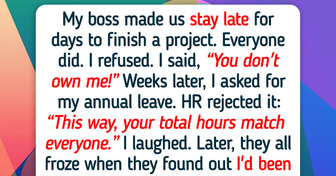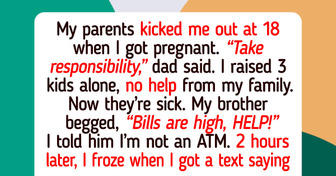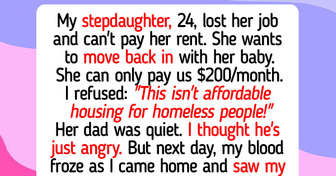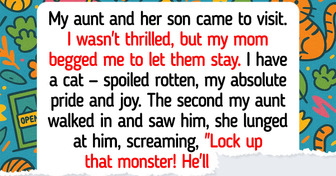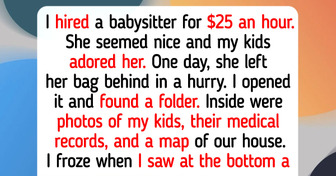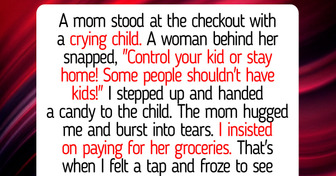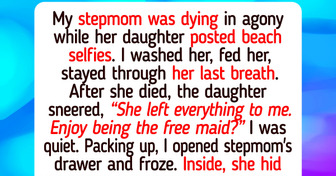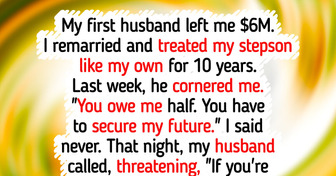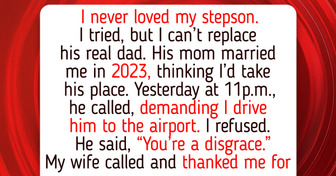11 Real Stories That Show Kindness Can Hurt, but Is Always Worth It
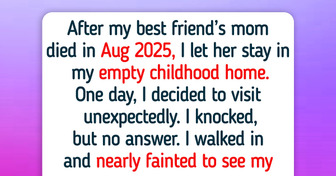

Costume designers are the genius people that work behind the scenes and send us messages through their creations. They help us understand the mood of every character through little details and they make the visuals of the film look stunning. Also, costume designers make the movie characters appear more real.
We at Bright Side love these little details, especially when it comes to movies. So, let’s dig deep together.
Costume designer — Michael Wilkinson
The character played by Colin Farrell is a boxing coach who becomes a guru for a group of street guys. In order to make the checkered tracksuits for the actors, they took a fabric called full plaid, made the print brighter, and put it on modern fabric — fleece. So, we see a mix of sport and street fashion. The coach is extremely stylish. And Wilkinson showed this by making him wear the 1980s glasses he found with an expert in vintage glasses.
Costume designer — Mark Bridges
Bridges created the wardrobe of the character based on the final look. The closer Arthur was to becoming Joker, the darker his clothes were. The clothes he wore before became the base of the new look, which makes his appearance more believable. So, the yellow-orange vest that was part of his look as a looser clown becomes a distinctive feature of his new look. He was basing his work on the description: “this terracotta suit that he’d had for many years.”
Costume designer — Jany Temime
Renée Zellweger had to get into a very special body position to portray her character. Her Judy had 2 distinctive body features: a round back and a concave belly, like a sort of starved woman. All of her clothing was made to fit that posture, and for this reason — nobody else could wear them after that.
Costume designer — Sandy Powell
Powell’s favorite touch in this costume is the robin on the hat, as the reference to the old movie. She didn’t want to put flowers on the hat in the same way as in the film from 1969: this wouldn’t look good on the new Mary Poppins. But she still had to decorate the hat somehow. So she decided to add the bird.
Costume designer — Isis Mussenden
Isis dressed the main character in a suit to make her harmonious with, yet different from, the male students at Harvard. At the time, there were no suits for women, so the designer made up this slim-fitted dress. She also added a brooch — a copy of the accessory given to Ruth by her mother.
So, we can see that the future judge Ginsberg is not only strong, but also feminine.
Costume designer — Alexandra Byrne
The designer used denim and it was an aesthetic choice: Elizabeth’s people didn’t have dry cleaners. Denim looks good even when it’s old and it makes it easy to show the real Scotland with its rain and mud.
Costume designer — Alexandra Byrne
The widow, Caroline Hubbard (Michelle Pfeiffer) had a lot more costumes than any other character in the film. Byrne says, “She’s a Broadway actress posing as a husband ‘hunter’ and a tourist — and her clothes are either a reflection of where she’s just been or where she’s going next. When the Orient Express leaves Istanbul, she’s wearing a dress with Syrian embroidery on it. In the mountains, she’s in ski gear. And, no matter where she is, her outfits are always a little too much.”
Costume designers — Olivier Bériot, Laurent Couline, Norbert Crispo
To show the world of the future, the costumes in the film were made of solid materials — plastic, metal, and neoprene.
So the military uniform of Valerian and Laureline was made of polyurethane. At first, Laurent Couline took the 3D-models of the actors and took them apart to make silicone molds and then poured polyurethane inside. So, this is how the costumes of the 28th century were made.
Costume designer — Kate Hawley
Guillermo del Toro, the director of the film, loves symbols and color-coding that you can see in the costumes of Crimson Peak. The character, Edith Cushing (Mia Wasikowska) is often in gold, which represents wealth.
Her clothes also include elements of Victorian mourning jewelry, like a belt made of her dead mother’s hair and a buckle that is a carving of her mother’s hands. The belt was also braided from real hair. “We used all Victorian techniques,” Hawley says. “We just made them a bit larger. It’s all very heightened.”
Costume designer — Renee Ehrlich Kalfus
Kalfus asked the lead actresses to wear girdles to show the spirit of the time, when women were trying to look perfect. She said, “This is a time in America when all the women wore girdles. I noticed how the posture changed when all these extras walked by in their heels and stockings and girdles. I’m not saying you’re going to want to wear a girdle 10 hours a day, but it really does help turn back the clock and allows actors to imagine themselves in another time.”
Costume designer — Amy Westcott
While making the protective suit for the main character, the designer drew inspiration from nature. She did research on beetles and learned about some that can change color when they are in danger — they turn dark and when they die, they become a pale yellow. Amy suggested this idea to the director and he included it into the script.
Costume designer — Judianna Makovsky
Even in the costumes of the elite, we see the dictator power of the Capitol. So, Effie (Elizabeth Banks) looks a bit frail, wearing a fuchsia skirt suit with a peplum jacket. She transcends mere affluence by adhering to a doctrine of crippling physical misery via fashion. She cannot possibly be comfortable tottering in high heeled booties, her ribs crushed by corsetry, and her face slathered in translucent powder. Of course, this is the point — she is just as much a prisoner as Katniss is.
Costume designer — Colleen Atwood
The costume of the Red Queen serves 2 functions: it changed the proportions visually (the black parts make the waist thin and the long white collar makes the neck look long) and shows how tasteless the Queen is (cheap fabric with hearts). Atwood says, “I wanted to keep it playful and a little cheesy because the Red Queen is, in fact, a bit tacky. And her heart-soled shoes are a fashion inside-joke — the poor woman’s Louboutins.”
Do you pay attention to the work of costume designers? Maybe you have your own favorite costumes from movies?

